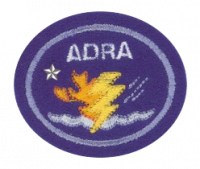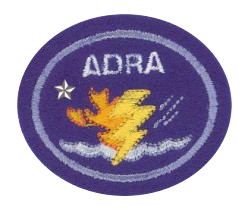Difference between revisions of "AY Honors/Disaster Response - Advanced/Requirements"
Jomegat bot (talk | contribs) (Bot: Automated import of articles *** existing text overwritten ***) |
(Marked this version for translation) |
||
| (One intermediate revision by the same user not shown) | |||
| Line 1: | Line 1: | ||
{{HonorSubpage}} | {{HonorSubpage}} | ||
| − | |||
| − | |||
<section begin=Body /> | <section begin=Body /> | ||
| − | + | <b>1. <section begin=req1 /><noinclude><translate><!--T:1--> | |
| − | <b>1. <section begin=req1 /><noinclude><translate></noinclude>Describe the underlying causes of each of these disaster scenarios and give a recent example of at least six and its impact on a community or country. Point to at least one in which ADRA responded. | + | </noinclude>Describe the underlying causes of each of these disaster scenarios and give a recent example of at least six and its impact on a community or country. Point to at least one in which ADRA responded. |
<noinclude></translate></noinclude><section end=req1 /></b> | <noinclude></translate></noinclude><section end=req1 /></b> | ||
| − | :<b>a. <section begin=req1a /><noinclude><translate></noinclude>Hurricane/Typhoon/Cyclone | + | :<b>a. <section begin=req1a /><noinclude><translate><!--T:2--> |
| + | </noinclude>Hurricane/Typhoon/Cyclone | ||
<noinclude></translate></noinclude><section end=req1a /></b> | <noinclude></translate></noinclude><section end=req1a /></b> | ||
| − | :<b>b. <section begin=req1b /><noinclude><translate></noinclude>Tornado | + | :<b>b. <section begin=req1b /><noinclude><translate><!--T:3--> |
| + | </noinclude>Tornado | ||
<noinclude></translate></noinclude><section end=req1b /></b> | <noinclude></translate></noinclude><section end=req1b /></b> | ||
| − | :<b>c. <section begin=req1c /><noinclude><translate></noinclude>Floods | + | :<b>c. <section begin=req1c /><noinclude><translate><!--T:4--> |
| + | </noinclude>Floods | ||
<noinclude></translate></noinclude><section end=req1c /></b> | <noinclude></translate></noinclude><section end=req1c /></b> | ||
| − | :<b>d. <section begin=req1d /><noinclude><translate></noinclude>Drought | + | :<b>d. <section begin=req1d /><noinclude><translate><!--T:5--> |
| + | </noinclude>Drought | ||
<noinclude></translate></noinclude><section end=req1d /></b> | <noinclude></translate></noinclude><section end=req1d /></b> | ||
| − | :<b>e. <section begin=req1e /><noinclude><translate></noinclude>Earthquake | + | :<b>e. <section begin=req1e /><noinclude><translate><!--T:6--> |
| + | </noinclude>Earthquake | ||
<noinclude></translate></noinclude><section end=req1e /></b> | <noinclude></translate></noinclude><section end=req1e /></b> | ||
| − | :<b>f. <section begin=req1f /><noinclude><translate></noinclude>Tsunami | + | :<b>f. <section begin=req1f /><noinclude><translate><!--T:7--> |
| + | </noinclude>Tsunami | ||
<noinclude></translate></noinclude><section end=req1f /></b> | <noinclude></translate></noinclude><section end=req1f /></b> | ||
| − | :<b>g. <section begin=req1g /><noinclude><translate></noinclude>Fires | + | :<b>g. <section begin=req1g /><noinclude><translate><!--T:8--> |
| + | </noinclude>Fires | ||
<noinclude></translate></noinclude><section end=req1g /></b> | <noinclude></translate></noinclude><section end=req1g /></b> | ||
| − | :<b>h. <section begin=req1h /><noinclude><translate></noinclude>Volcanic eruption | + | :<b>h. <section begin=req1h /><noinclude><translate><!--T:9--> |
| + | </noinclude>Volcanic eruption | ||
<noinclude></translate></noinclude><section end=req1h /></b> | <noinclude></translate></noinclude><section end=req1h /></b> | ||
| − | :<b>i. <section begin=req1i /><noinclude><translate></noinclude>War/Civil conflict | + | :<b>i. <section begin=req1i /><noinclude><translate><!--T:10--> |
| + | </noinclude>War/Civil conflict | ||
<noinclude></translate></noinclude><section end=req1i /></b> | <noinclude></translate></noinclude><section end=req1i /></b> | ||
<section begin=challenge /> | <section begin=challenge /> | ||
| − | <b>2. <section begin=req2 /><noinclude><translate></noinclude>The four stages of managing a disaster or emergency include: 1) Planning and Mitigation, 2) Preparedness, 3) Response, 4) Recovery. In your own words, describe to your instructor what each of these terms mean and why they are important. | + | <b>2. <section begin=req2 /><noinclude><translate><!--T:11--> |
| + | </noinclude>The four stages of managing a disaster or emergency include: 1) Planning and Mitigation, 2) Preparedness, 3) Response, 4) Recovery. In your own words, describe to your instructor what each of these terms mean and why they are important. | ||
<noinclude></translate></noinclude><section end=req2 /></b> | <noinclude></translate></noinclude><section end=req2 /></b> | ||
<section end=challenge /> | <section end=challenge /> | ||
| − | <b>3. <section begin=req3 /><noinclude><translate></noinclude>Preparedness is key during a disaster. If you were to build a home disaster kit, describe to your instructor what items you would include. Discuss the advantages of choosing battery- over electricity-powered items, and non-perishable over perishable foods. | + | <b>3. <section begin=req3 /><noinclude><translate><!--T:12--> |
| + | </noinclude>Preparedness is key during a disaster. If you were to build a home disaster kit, describe to your instructor what items you would include. Discuss the advantages of choosing battery- over electricity-powered items, and non-perishable over perishable foods. | ||
<noinclude></translate></noinclude><section end=req3 /></b> | <noinclude></translate></noinclude><section end=req3 /></b> | ||
| − | <b>4. <section begin=req4 /><noinclude><translate></noinclude>Draw the floor plan of where you live. Think about what you should do in three of the disasters listed on question #1. Design an escape route for your house and discuss it with your instructor and family. | + | <b>4. <section begin=req4 /><noinclude><translate><!--T:13--> |
| + | </noinclude>Draw the floor plan of where you live. Think about what you should do in three of the disasters listed on question #1. Design an escape route for your house and discuss it with your instructor and family. | ||
<noinclude></translate></noinclude><section end=req4 /></b> | <noinclude></translate></noinclude><section end=req4 /></b> | ||
| − | <b>5. <section begin=req5 /><noinclude><translate></noinclude>Find three stories in the Bible that involved natural disasters or political emergencies. Put yourself in the place of the people in the stories and describe how those events would affect you. Also, briefly discuss how the people in the stories got through the difficult times. | + | <b>5. <section begin=req5 /><noinclude><translate><!--T:14--> |
| + | </noinclude>Find three stories in the Bible that involved natural disasters or political emergencies. Put yourself in the place of the people in the stories and describe how those events would affect you. Also, briefly discuss how the people in the stories got through the difficult times. | ||
<noinclude></translate></noinclude><section end=req5 /></b> | <noinclude></translate></noinclude><section end=req5 /></b> | ||
| − | <b>6. <section begin=req6 /><noinclude><translate></noinclude>Give a short report at your Pathfinder Club about what you learned about disasters and disaster preparedness. You can do this through a presentation, skit, short video, or any method that will best convey what you learned. | + | <b>6. <section begin=req6 /><noinclude><translate><!--T:15--> |
| + | </noinclude>Give a short report at your Pathfinder Club about what you learned about disasters and disaster preparedness. You can do this through a presentation, skit, short video, or any method that will best convey what you learned. | ||
<noinclude></translate></noinclude><section end=req6 /></b> | <noinclude></translate></noinclude><section end=req6 /></b> | ||
<section end=Body /> | <section end=Body /> | ||
| − | |||
| − | |||
| − | |||
| − | |||
| − | |||
Latest revision as of 21:58, 20 July 2022
Skill Level
2
Year
2009
Version
01.02.2026
Approval authority
General Conference
1. Describe the underlying causes of each of these disaster scenarios and give a recent example of at least six and its impact on a community or country. Point to at least one in which ADRA responded.
- a. Hurricane/Typhoon/Cyclone
- b. Tornado
- c. Floods
- d. Drought
- e. Earthquake
- f. Tsunami
- g. Fires
- h. Volcanic eruption
- i. War/Civil conflict
2. The four stages of managing a disaster or emergency include: 1) Planning and Mitigation, 2) Preparedness, 3) Response, 4) Recovery. In your own words, describe to your instructor what each of these terms mean and why they are important.
3. Preparedness is key during a disaster. If you were to build a home disaster kit, describe to your instructor what items you would include. Discuss the advantages of choosing battery- over electricity-powered items, and non-perishable over perishable foods.
4. Draw the floor plan of where you live. Think about what you should do in three of the disasters listed on question #1. Design an escape route for your house and discuss it with your instructor and family.
5. Find three stories in the Bible that involved natural disasters or political emergencies. Put yourself in the place of the people in the stories and describe how those events would affect you. Also, briefly discuss how the people in the stories got through the difficult times.
6. Give a short report at your Pathfinder Club about what you learned about disasters and disaster preparedness. You can do this through a presentation, skit, short video, or any method that will best convey what you learned.



